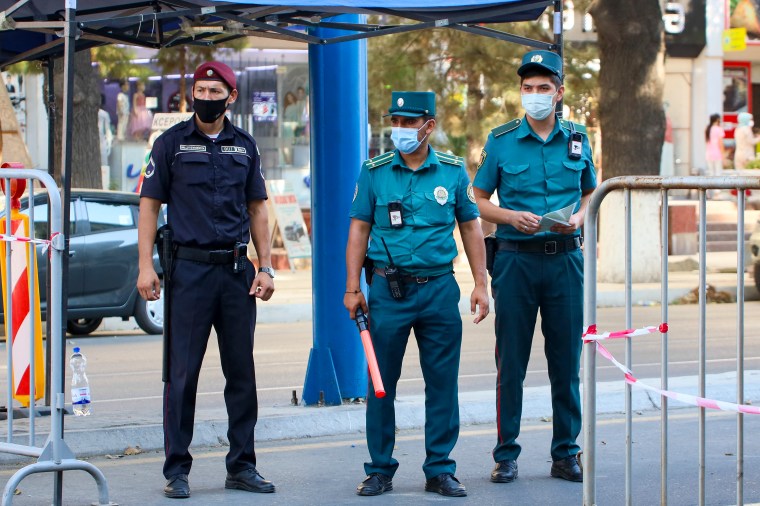Stockholm, April 28, 2021 – Uzbek authorities should repeal recent legal amendments that deepen restrictions on online speech, and should ensure that journalists are free to report and comment on issues of public importance without fear of prosecution, the Committee to Protect Journalists said today.
On March 31, new amendments to the country’s criminal code, administrative code, and 2003 information law went into force following their approval by the country’s parliament and president, according to news reports and the text of the amendments, which CPJ reviewed.
The amendments introduce prison sentences for crimes including insulting or defaming the president online and making online calls for “mass disturbances,” and make it an offense to publish statements online that urge people to violate the law and threaten public order, or show “disrespect” to the state.
“As October’s presidential elections in Uzbekistan grow closer, authorities seem intent on strengthening their control over free expression with this new raft of legislative amendments,” said Gulnoza Said, CPJ’s Europe and Central Asia program coordinator, in New York. “If Uzbek authorities want the world to believe they are genuinely attempting to conduct liberal reforms, they should repeal these laws, which limit press freedom and threaten fines and imprisonment for those who report critically.”
Under the amendments relating to the online “public insult or defamation” of the president (Article 158, Part 3 of the criminal code), convictions can carry up to five years in prison, three years of correctional labor, or two to five years of restricted freedom, during which the subject may be barred from traveling or working in certain professions.
In the previous version of the criminal code, that article only covered instances of alleged defamation of the president published in media outlets.
A new version of Article 201.1 of the country’s administrative code criminalizes “public call[s] to non-fulfilment or violation of legislative acts, creating a threat to public order” online or via media outlets, subject to a fine of up to 19.6 million Uzbek soums (US $1,875), and the new Article 244 of the criminal code, relating to “public call to mass disturbances and violence against citizens” online or via media outlets, is punishable by up to 10 years in prison.
A number of changes were also made to Article 12.1 of the 2003 law “On Informatization.” That article, which covers the general dissemination of information on the internet, has been expanded to prohibit using the internet to make calls to participate in unsanctioned “gatherings, meetings, street processions and demonstrations” or to disseminate information “demonstrating disrespect to society, the state, and state symbols.”
The amended Article 12.1 also contains provisions obliging website owners and social media users to monitor third-party comments posted on their publicly accessible websites and accounts, and remove any comments that violate the article’s provisions.
The revised law refers to an earlier Cabinet of Ministers decree which states that website and account owners have 24 hours from the receipt of a written warning to remove offending content. Failure to comply can lead to the blocking of access to the resource in question and potential legal action from injured parties, for instance if the comments defame another individual, according to the amendments. Disputes over take-down orders will be resolved by the courts, according to an official quoted in news reports.
The law does not stipulate any other specific penalties for the offenses under Article 12.1. Dilfuza Kurolova, an Uzbek human rights lawyer and legal expert, told CPJ via messaging app that defendants could potentially be prosecuted under several different clauses of the criminal and administrative codes, and said it remains to be seen how the provision on “disrespect to society, the state, and state symbols” in particular will be enforced.
The March 31 amendments follow the passage on December 25, 2020, of amendments making the “distribution of false information” an administrative and criminal offense, as CPJ documented at the time.
CPJ emailed the press service of the president of Uzbekistan and the Oliy Majlis, the country’s parliament, for comment, but did not receive any replies.
